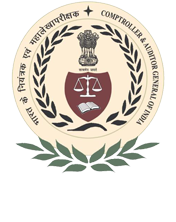Audit Reports

Chhattisgarh
Report No. 2 of the year 2022 -Performance Audit on Implementation of 74th Constitutional Amendment Act in Chhattisgarh, Government of Chhattisgarh for the year ended 31 March 2020
Overview
The 74th Constitutional Amendment, which came into effect on 1 June 1993, provided a clear mandate for democratic decentralization and sought to create an institutional framework for ushering in democracy at the grass root level through self-governing local bodies in urban areas of the country. It empowered Urban Local Bodies to perform 18 functions listed in the 12th Schedule of the Constitution.
Chhattisgarh, located in central India, is geographically the ninth largest State of the country, having a population of 2.55 crore of which 59.37 lakh reside in urban areas. Urban Chhattisgarh faces multiple challenges, namely, public health issues, poverty alleviation, waste management, depletion of natural resources, etc. In this scenario, Urban Local Bodies have an important role to play, as most of these issues are dealt best at the local level.
In Chhattisgarh, three tiers of Urban Local Bodies are categorised on the basis of population in their jurisdiction. The objective of this Audit was to see whether the State Government had empowered the Urban Local Bodies through the creation of a robust institutional framework, supported by transfer of functions, funds and functionaries.
We observed that the task of delimitation has not been entrusted to the State Election Commission and elections of Urban Local Bodies were being held in 15 Urban Local Bodies with a delay of one year.
Adherence to business procedures and regular meetings of various committees is imperative for successful functioning of Urban Local Bodies. However, we noticed that meetings of Corporations/Councils were not held as per laid down norms. Advisory Committees were not constituted in 10 Urban Local Bodies. On the other hand, Ward Committees and Mohalla Committees that were to be created to ensure community participation in local governance, were not constituted across the Urban Local Bodies. Further, due to absence of provision in the Chhattisgarh Municipal Corporations Act, the Metropolitan Planning Committees were not constituted in any city. Meetings of District Planning Committees were also not held regularly and consolidated District Developments Plans for the District as a whole by considering the matters of common interest were not prepared in any of the 12 Districts in which the 27 test-checked Urban Local Bodies were located.
Timely constitution of State Finance Commission and taking swift actions on its recommendations is critical towards strengthening the financial position of Urban Local Bodies. Delay in constitution of State Finance Commissions (first to third) and consequent delays in submission of their reports, as well as delay in acceptance and implementation of recommendations relating to devolution of funds have adversely affected the financial position of the Urban Local Bodies. We noticed that the devolution of funds is still being carried out as per the recommendations of the Second State Finance Commission, even when the constitution of Fifth State Finance Commission was due.
We noticed that the revenue raised by Urban Local Bodies from own sources was low. Significant amounts were due to the Urban Local Bodies pertaining to Property Tax and Water Tax, which are two of their biggest revenue sources. GIS Survey, which can have a substantial progressive impact on Property Tax, too was conducted only in 10 Urban Local Bodies. Further, it was noticed that none of the selected Urban Local Bodies except Nagar Nigam Korba had installed meters for water connections and only fixed water charges were being levied which was not sufficient to even pay for expenses on operation and maintenance of water supply.
There were large variations between Budget Estimates and actual income and expenditure over several years, which indicated improper budget formulation.
Sufficient and suitably trained Human Resource is critical for effective functioning of any institution. The Urban Local Bodies neither had the powers to assess the staff requirement, nor recruit the required permanent staff except on contractual basis as these powers were vested with the State Government. The Urban Local Bodies were working with acute shortage of staff and dependent on out-sourced staff. The State Government assessed the requirement of staff based on population alone, without seeking the actual requirement from Urban Local Bodies. Majority of the staff were appointed by State Government, and the powers to regulate their conditions of services, discipline, and conduct was vested with the State Government. Though training courses have remained more or less constant over the years, participation of staff has decreased.
Download Audit Report
-
Index
-
Preface
-
Executive Summary
-
Chapter 1- Introduction
-
Chapter II -Compliance to provisions of 74thConstitutional Amendment Act
-
Chapter III- Empowerment of Urban Local Bodies and their functioning
-
Chapter IV-Financial Resources of Urban Local Bodies
-
Chapter-V: Conclusion
-
Appendices

